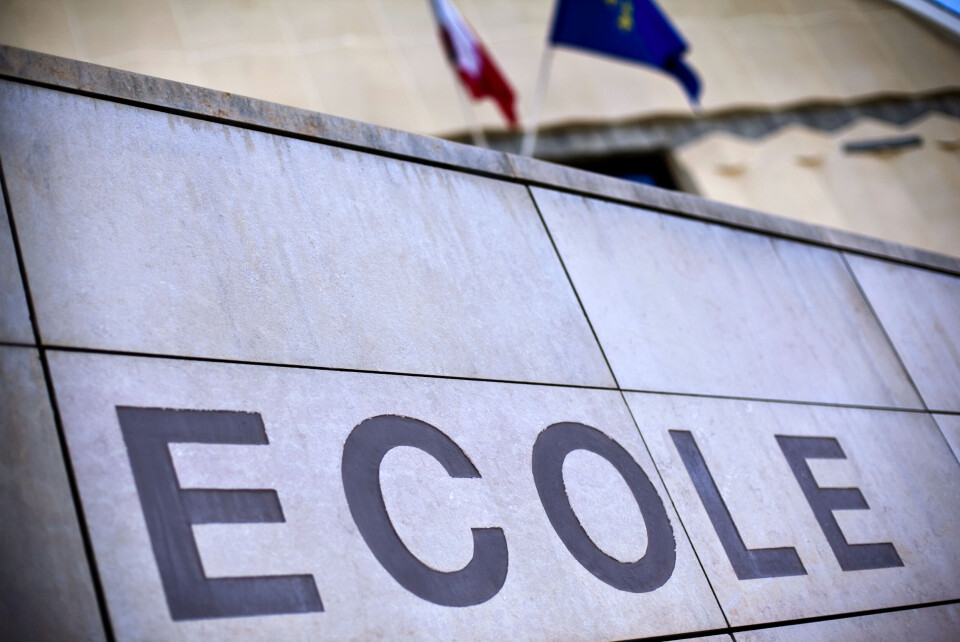-
Britons are the largest foreign community of second-home owners in Nouvelle Aquitaine
See which other departments in the region are popular with British nationals
-
Travellers risk extra costs under new Eurotunnel ticket rule
Some fare options are less flexible and less forgiving of lateness
-
May will be difficult month for train travel in France, warns minister
Two major train unions are threatening to strike and are ‘not willing to negotiate’, he says
French schools must provide sexuality education, says minister
This has been required in France since 2001, adds the new education minister, amid criticism from the far-right

France needs to talk about sexuality and gender education at school, the national education minister has reiterated amid criticism from far-right former presidential candidate Eric Zemmour.
Pap Ndiaye told FranceInfo yesterday (September 12): “We must speak about sexuality education at school, in fact, it’s even a legal duty to do so.”
This could take a variety of forms, he said, and could even start with the playground, “where boys [typically] play football and girls play hopscotch”.
He said that teaching on the topics of gender equality and sexuality amounts to a “public health” duty and that it aims to reduce teenage pregnancy rates, the spread of sexually-transmitted diseases, gender-based discrimination, sexist and sexual violence and discrimination against LGBT+ people.
"Nous devons parler d'éducation à la sexualité à l'école, c'est d'ailleurs une obligation légale", rappelle Pap Ndiaye. "Or il y a de grandes variations selon les écoles. Nous devons améliorer cette situation." pic.twitter.com/nuuezBEK0h
— franceinfo (@franceinfo) September 12, 2022
Mr Ndiaye also said that since 2001, the law has made it “very clear” that schools have a responsibility to teach on the subject of gender equality and sexuality.
He said: “Information and education on sexuality should be provided in schools, collèges, and lycées at a rate of at least three sessions per year and in age-appropriate, all-gender groups. These sessions present an egalitarian view of relations between women and men.”
This is written in the educational code, he said.
Yet, “large variations” exist on the subject, depending on the school, class, and geographic location, he added.
A 2016 report from the Haut Conseil à l'Egalité entre les femmes et les hommes (high council of equality between men and women) found that "the application in practice of legal obligations in the area of sexuality education in schools is still fragmented and uneven across the country because it depends on individual goodwill.
“According to some key participants, it is not tailored to the realities of young people.”
‘LGBT propaganda’
Mr Ndiaye’s stance has drawn criticism from far-right former presidential candidate Eric Zemmour, who has denounced it as “LGBT propaganda” at the heart of national education.
And yet, the minister said that his proposed curriculum would “have nothing to do with gender theory” and that there would be “no classes about gender [specifically]” in schools. He denounced Mr Zemmour as “a professional polemicist”.
He said: "These are the words of a professional polemicist who is not thinking about the interests of children, but only about his political career, which is in a bad way.”
Controversial minister
Pap Ndiaye has been the French minister of national education and youth since he was appointed by President Macron in the government of Prime Minister Élisabeth Borne on May 20, 2022. He took over from Jean-Michel Blanquer.
He previously attracted controversy among right-wing and centrist circles over comments about structural racism, colonialism and multiculturalism in France.
At the time, leader of the Rassemblement National, Jordan Bardella, accused him of “a lack of gratitude towards France”.
Mr Ndiaye has been a faculty member of Sciences Po university since 2012, has previously edited history journals and is an expert in North American studies and immigration.
Related articles
French schools are back: what changes for the year ahead?
Christmas, Easter: See the dates for France’s school holidays 2022-23
























